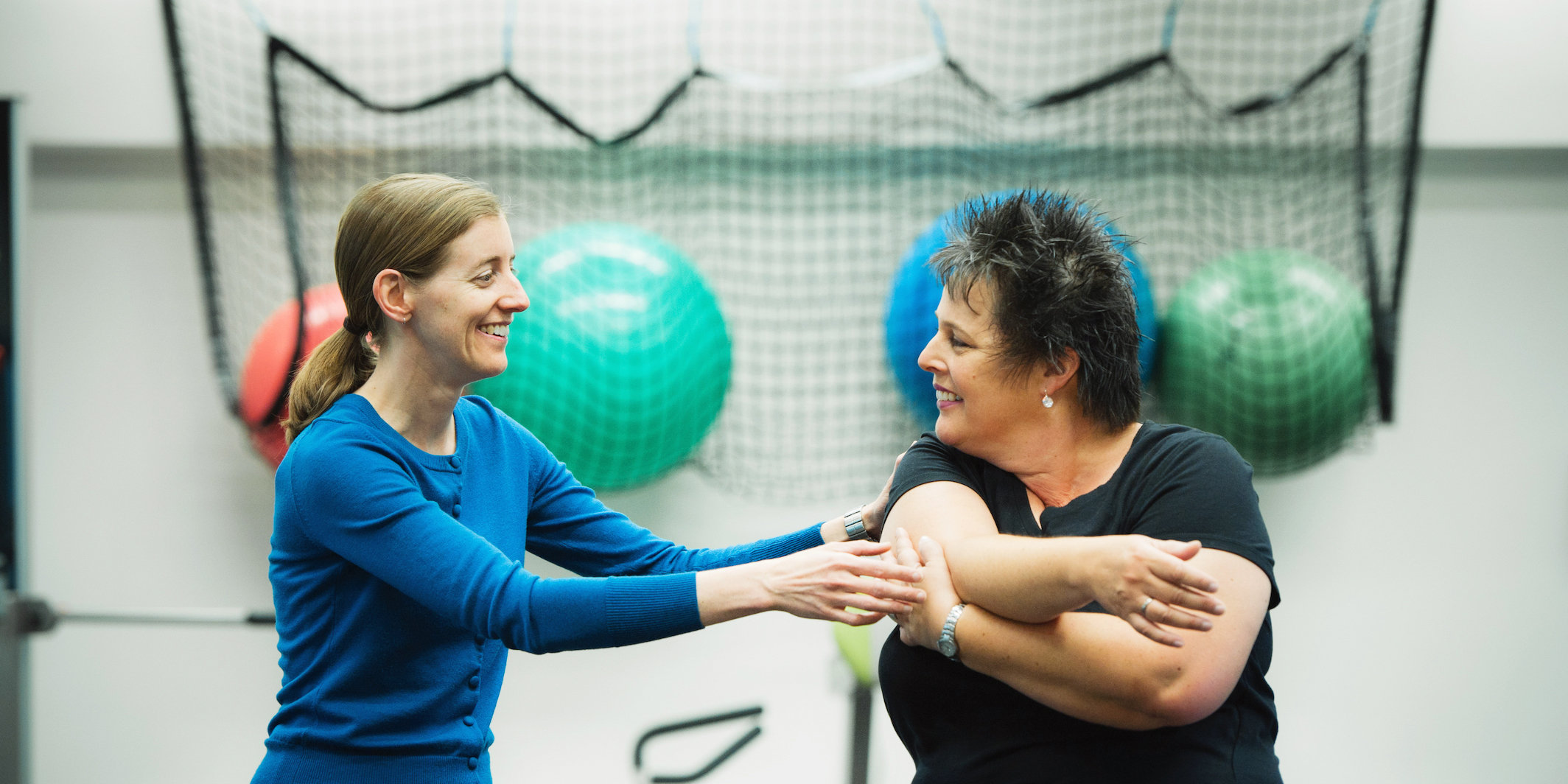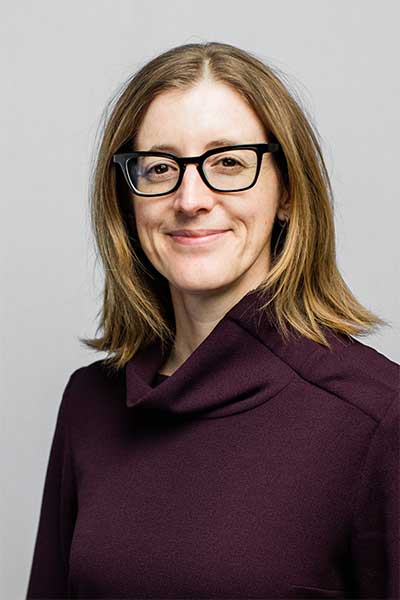
A team of UBC researchers wants to help people living with cancer incorporate exercise as an important part of their treatment and recovery.
A growing body of evidence suggests that physical activity can greatly benefit cancer patients and survivors. In partnership with BC Cancer and the Canadian Cancer Society, researchers at UBC’s cancer exercise and physiotherapy lab are leading a series of studies aimed at better understanding these benefits, and bringing them to people across B.C. through virtual and in-person programs.
Dr. Kristin Campbell, a professor in the UBC faculty of medicine’s department of physical therapy and affiliate scientist with the BC Cancer Research Institute, shares how exercise can help in the fight against cancer — and how people can get involved in their research.
How can exercise benefit cancer patients and survivors?
One of the main benefits that may surprise people is that exercise actually helps to improve cancer-related fatigue, which is a very common symptom of cancer treatments. When you are feeling tired, doing exercise may be the last thing you want to do, but research consistently shows that exercise can actually give you more energy. Physical activity can also help to reduce anxiety, as well as improve mobility after surgery, quality of life and overall fitness. We are also learning more about how exercise may help people be able to receive more of their planned treatment, feel more confident returning to work or household activities, and improve sleep.

You’re running a series of cancer exercise studies that are open to participants in B.C. What is the goal of this research?
We’re exploring new ways to deliver cancer exercise programming so it can reach more people in British Columbia. We want to make exercise rehabilitation more accessible, so we are offering programs using different delivery methods, including virtual online classes, health coaching by phone and in-person classes at various locations, including the Canadian Cancer Society’s Centre for Cancer Prevention and Support in Vancouver. We are also working with physiotherapists and exercise professionals in rural areas to be able to expand the delivery of in-person programs. We have programs focused on all different types of cancer, and our team will work with you to determine which one is the best fit.
Why should people consider taking part in these studies?
The key thing we hear from people living with cancer is that they want to know what is safe for them and to work with physiotherapists and exercise professionals who have additional training in working with people with cancer, so that they understand the cancer experience, cancer treatments, and the side effects of treatment. This work is really focused on connecting people to those trained professionals.
What forms of exercise are typically recommended?
We always say that moving more benefits nearly everyone. A daily brisk walk for even five minutes, standing and sitting from a chair several times a day, or dancing in your living room are all great places to start. The key is to find something that you like to do, and it can be helpful to do the activities with other people.
To help manage side effects of cancer treatment, we usually recommend building up to at least 30 minutes of aerobic exercise, such as brisk walking, three times per week. If you prefer, you can do strength training of large muscles groups two times per week. Or a combination of the two. If that is working well, you can consider working up to meeting the current physical activity guidelines for all Canadians, which is at least 150 minutes per week of moderate intensity aerobic exercise and two days a week of strength training.
Are there additional safety considerations for people living with cancer?
Yes, which is why we have a team of highly-trained professionals to help people safely incorporate exercise into their cancer journey. For instance, during cancer treatment, white and red blood cell counts can drop, which is a good time to reduce exercise until those levels have improved. Sometimes balance can be a challenge due to chemotherapy drugs that cause tingling and numbness in hands and feet especially, so it’s advisable to wear good shoes and to avoid uneven surfaces or activities where lighting is poor. For people with cancer that has spread to bones, it’s advised to work with your healthcare team and a qualified exercise professional to ensure you are moving with good form and posture to not overload the affected area.
To learn more about participating in these studies, visit www.cancerexercise.ca or contact the research team at exercise.research@ubc.ca or 604-827-1914.